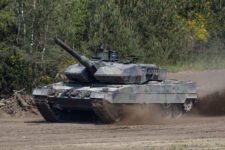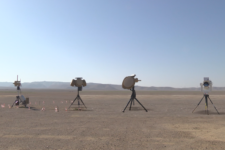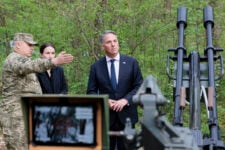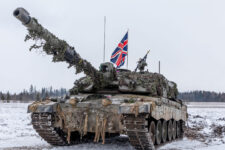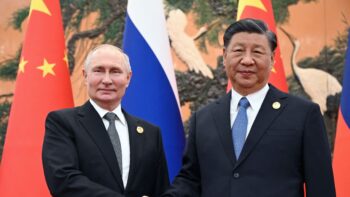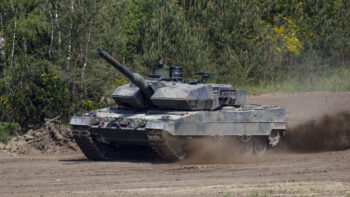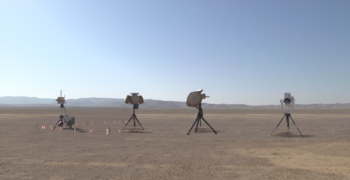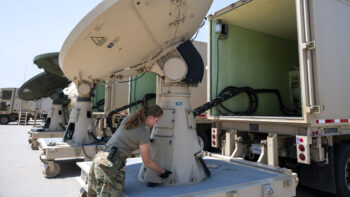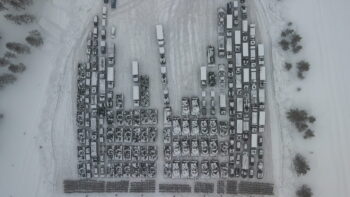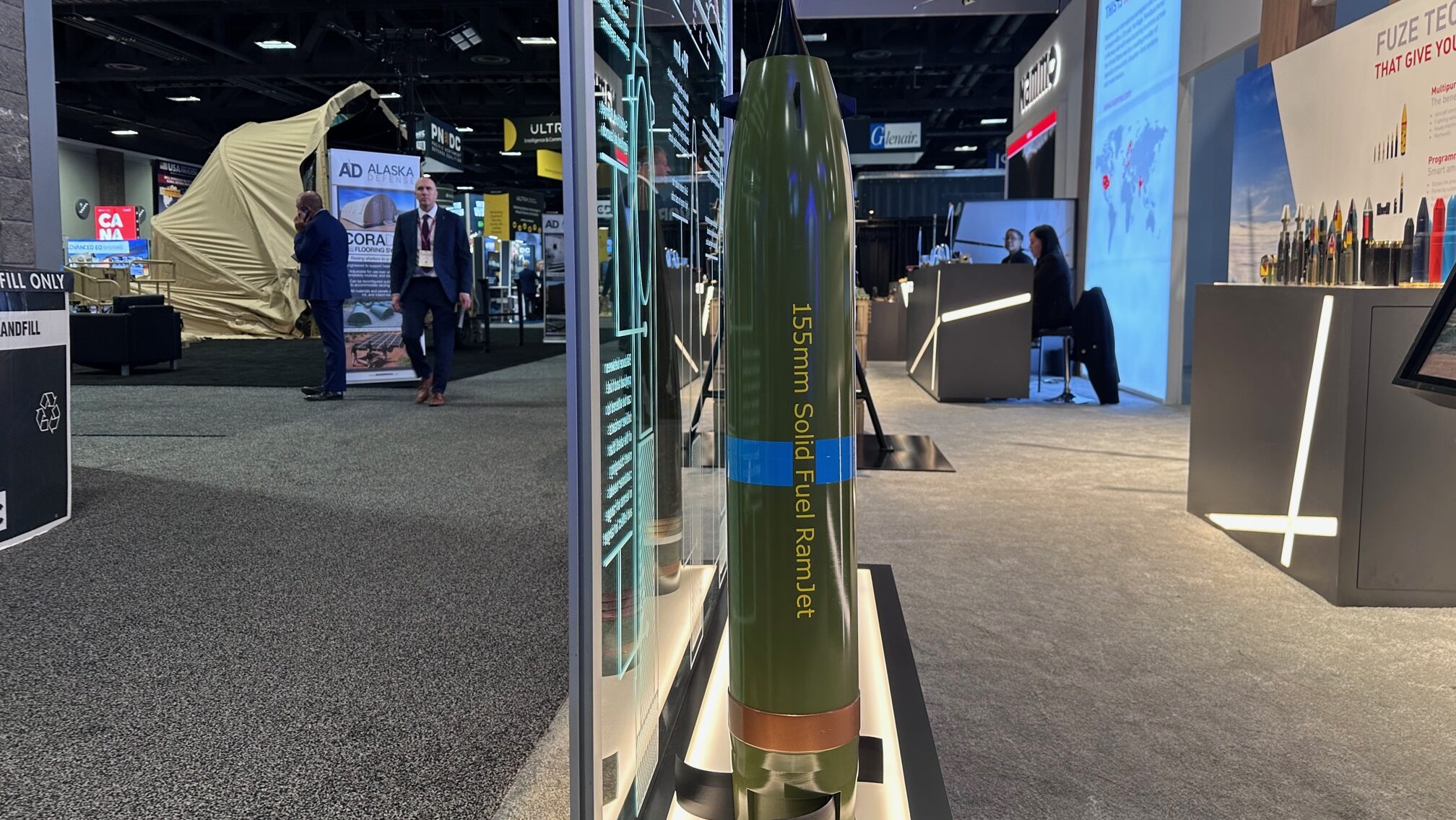
Nammo’s 155mm solid fuel ramjet system on display at AUSA
AUSA 2023 — A leading European ammunition manufacturer has urged national governments across the continent to provide arms makers with longer production contracts or face an industrial crisis that could spill over into research and development activities for future munitions.
Morten Brandtaeg, CEO of Norway’s Nammo, told Breaking Defense in an interview that 10- to 15-year production contracts should be agreed “because that’s what it takes” to sustain industry investments.
“We’re looking at three to four years contracts [currently] and that’s kind of challenging,” he explained on the sidelines of the AUSA 2023 exposition in Washington. “We need to talk about how we share the risk with governments, because there is the risk that the industry [could] almost break their neck because of all these heavy investments.
“Remember, we have to continue to invest in R&D as well, because now we are opening the Pandora’s Box for the adversary. That means that we have to make good profits so we can continue to spend money on the next versions of artillery rounds,” he said.
RELATED: US House, Senate defense authorizers agree to multi-year munitions buys
Since the US and allies on the continent have been providing security aid to Ukraine by the tons, Europe has experienced an acute ammunition shortage, with 155mm shells in high demand, but Brandtaeg noted that difficulties with supplies of explosives and other bottlenecks should be “addressed at the same time.”
Open source reporting has revealed Ukrainian Forces are expending 6,000 to 7000 artillery rounds a day, equating to an annual rate of 2.4 million shells.
Brandtaeg told the Financial Times in March that demand for artillery rounds had reached 15 times higher than usual and that the ammunition industry requires investment of €2 billion ($2.1 billion) in new factories to keep up with the demand from Ukraine.
At an industrial level, Europe counts on Nammo, France’s Nextar, BAE Systems of the UK and Germany’s Rheinmetall for ammunition production.
Europe has also started an ammunition production ramp up, spearheaded by the European Union’s Act in Support of Ammunition Production (ASAP) program, that aims to better match ammo demand against production.
In recent months, NATO has also made progress with ammunition problems across Europe, signing off on a first set of joint procurement 155mm shell contracts.
Brandtaeg said that at a “political level” the shortage issue has definitely attracted more attention than “a year ago,” leaving him “more optimistic” about production difficulties being smoothed out.
He also told Breaking Defense that he met with chiefs of staff from Nordic nations on Sunday where “joint operations” were discussed.
“They [Nordic nations] need a closer relationship between the armed forces and the industry because they cannot stand in a war for a long time, unless they have an industry that is prepared,” he explained.
With Finland newly in the alliance and as Sweden waits in the wing, Brandtaeg stressed that both moves will “definitely strengthen” Nordic military co-operation.
